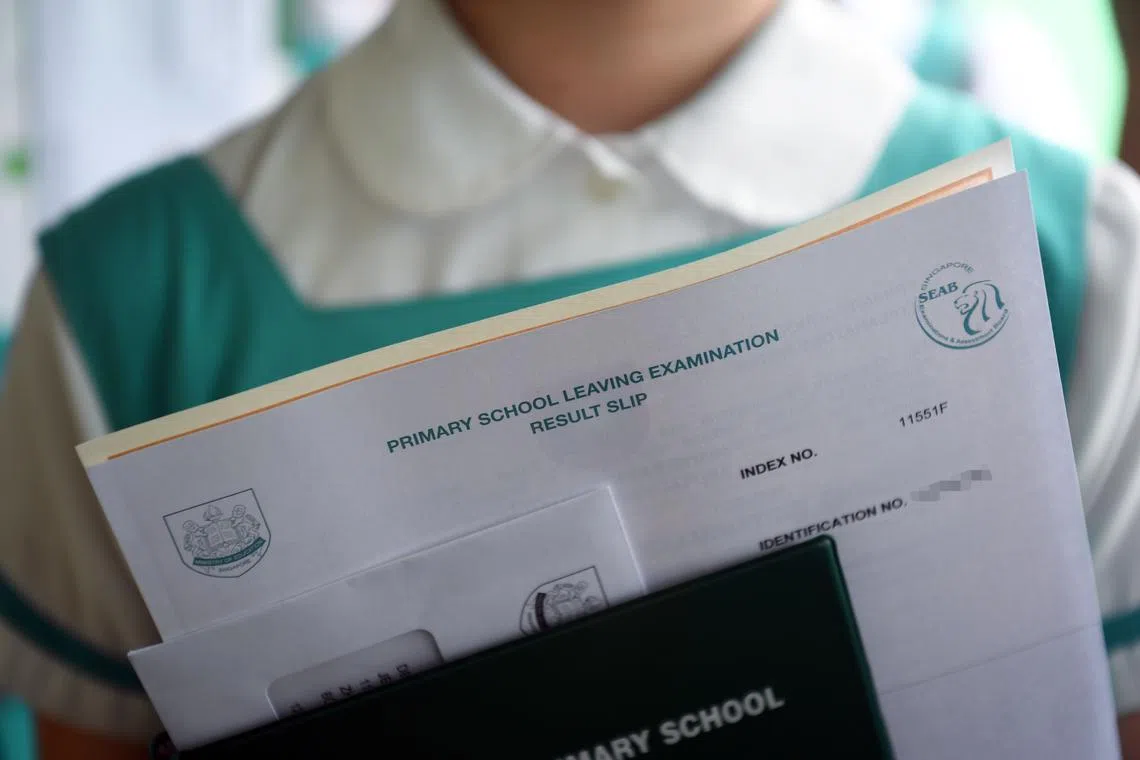About 6% of DSA students come from lower-income families; MOE to review scheme: Chan Chun Sing
Sign up now: Get ST's newsletters delivered to your inbox

DSA provides a pathway for Primary 6 pupils to gain early admission into the secondary school of their choice using non-academic talents.
PHOTO: ST FILE
Follow topic:
SINGAPORE - About 6 per cent of students admitted to secondary schools by direct school admission (DSA) in the last five years received financial assistance, said Education Minister Chan Chun Sing, adding that the ministry is reviewing the scheme.
These students are recipients of the Ministry of Education’s (MOE) financial assistance scheme or the independent school bursary, said Mr Chan in Parliament on Oct 15. They have a monthly gross household income of $3,000 or less, or monthly per capita income of $750 or less.
In addition, some DSA students receive school-based financial support, he said.
Mr Chan said that MOE will also be reviewing the DSA scheme with three aspects in mind: ensuring that schools focus on students’ development, the selection process remains objective and transparent, and the scheme continues to be accessible.
He was responding to questions by Mr Sharael Taha (Pasir Ris-Punggol GRC) about the number of lower-income pupils who have secured places in secondary schools via DSA, and whether the scheme has shifted from its intent of identifying students with talents to those who can afford enrichment and preparatory programmes.
Introduced in 2004, DSA provides a pathway for Primary 6 pupils to gain early admission into the secondary school of their choice using non-academic talents such as those in sports and the arts.
Over the years, the scheme has drawn criticism that it advantages wealthier families who can afford private coaching and preparatory classes. The MOE has made several refinements to DSA, such as removing application fees and expanding the intake of students.
In July, Chinese newspaper Shin Min Daily reported that a basketball coach had allegedly taken money from parents
Mr Chan said the ministry’s review will ensure that schools focus on providing opportunities that add value to the development of their DSA and non-DSA students, whether in school programmes, co-curricular activities or academic pursuits.
“Notwithstanding the need for schools to weigh different considerations when assessing DSA applicants, we want to strengthen the DSA selection process so that it continues to be undergirded by principles of transparency, objectivity, inclusiveness and student-centricity,” he said.
The review will also look at ensuring that DSA remains accessible and that students from all backgrounds are recognised not just for their performance but also for their potential in specific talent areas, he said, adding that more details will be shared later.
Currently, MOE and schools have supported students from disadvantaged backgrounds in various ways to join DSA, including helping primary school pupils identify their strengths, and supporting them through their DSA application, said Mr Chan.
The ministry also runs the Junior Sports Academy, taking in students who show sporting potential, with no prior training needed, Mr Chan said, adding that a “good number” of these participants apply for DSA.
Secondary schools also consider students’ interest, potential and personal qualities like drive and resilience, Mr Chan said.
“(The ministry is) keenly aware that better-resourced families will certainly have more opportunities to provide for their children,” he said. Thus, the different opportunities that students from wealthier families and lower-income families are accorded will be taken into account in the DSA selection process, he said.
Mr Sharael asked whether schools would reserve DSA spots specifically for lower-income students and if the ministry would consider capping the percentage of DSA students in certain sports or cultural activities to provide opportunities for “late bloomers”.
Mr Chan said: “When we look at the potential of the students, we will have to take into account not just their current performance, but their future potential, and that is something that we must carefully do.” But he cautioned against using quotas, as it “might defeat the purpose of DSA and selection based on merit in terms of potential and performance”.


